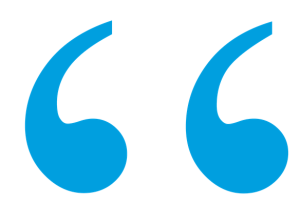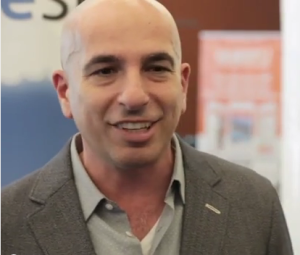I define Hyper-Growth at $1m to $10m ARR in 5 quarters or less. When this post went live, Talkdesk was about to cross that line (it’s since crossed it several times over).
We’ll continue the Talkdesk thread as well over time as an interesting case study. Fortunately, a good friend of mine, Gadi Shamia joined as COO recently and I asked him what he learned. His answers were interesting — as an C-level insider still new enough to have an outsider’s analytical perspective. I thought that would be a unique opportunity to get a somewhat less-biased view of what hyper growth really is like.
We can’t all run and work in true Hyper-Growth startups. Most of us, we’re just in High Growth start-ups — which is still awesome. But I think we can all learn something from them, how to do 10%, 20%, 30% better. That’s a lot in SaaS. Because it compounds.
So here’s what he learned:
8 Things I Learned after joining a Hyper-Growth SaaS Startup

 Little over 3 months ago I joined Talkdesk, a call center SaaS company as a COO. Talkdesk is an amazing success story: it got to $1M in ARR with almost no capital investment, 5 employees in Portugal, 1 CEO in San Diego and no sales people to speak of. Between its seed round in August and the time I joined in January, it grew over 3X in revenue and 5X in people.
Little over 3 months ago I joined Talkdesk, a call center SaaS company as a COO. Talkdesk is an amazing success story: it got to $1M in ARR with almost no capital investment, 5 employees in Portugal, 1 CEO in San Diego and no sales people to speak of. Between its seed round in August and the time I joined in January, it grew over 3X in revenue and 5X in people.
I had a really good view into the company before I joined: I knew Jason Lemkin (first institutional investor) and several team members. Tiago Paiva, the co founder/CEO, was very transparent and shared full financials, board decks and challenges. I was ready. Or at least this is what I thought.
You can’t really be ready to join a hyper-growth startup
The treadmill is already rolling at 12 miles per hour. You just came from work with a suit and dress shoes. You are holding a briefcase in the right hand. The coach tells you to jump and start running. Oh, he also throws balls to you, expects you to catch them and throw them back at him. This is how it felt to join Talkdesk.
I’ve seen growth before. I co-founded a startup, got acquired by SAP and was part of growing our little baby to a 9 figures business in a short period of time. But this was different, very different. Back then I was “training and modifying the machine” to think and sell our product. This time around we are building the machine, while it is going a 7000 rounds per minute. What’s the lesson here? Join a hyper-growth startup only if you are excited about the journey. You will grow weary if all you care about is the outcome.
Don’t assume you know much
What got you here won’t get you there. I am not talking about the book (pretty good but very corporate-y) but about your skillset and experience. There are so few companies that grow so fast that the chance you worked for one and know exactly what to do is almost zero. Rather than trying to replicate what worked for you before, try to use your experience as a base, but be quick to unlearn, listen to the current team and understand what works, so you can help building a new, unique formula.
Assume mostly everything is broken, yet somehow everything works
It is easy to assume that a company that grows so fast has a near perfect operations. Nah. It is the opposite. Companies that grow so fast do it because of a unique product/market fit and not because they built an infrastructure for growth and hoped for product/market fit later. Respect the magic formula that got the company so far, but get ready to build the foundation needed to take the company to the next level.
Hire first, solve problems later
The first instinct when seeing a problem is solving it. As per the above, Talkdesk has many challenges to attack. Fight the instinct to sink your time into solving the problems and focus on hiring the people that can not only solve the problems, but continue improving things over time. It is not the fastest way, but the only way to solve more than one problem and for the long run. I spent about 70% of my time hiring in the last 3 months, and I don’t regret any permille of that.
Hire good people, even if you are not sure for what
Few months ago, we had roughly 3 roles in the company: engineering, sales, and support. As the company grows, new types of roles emerge and more management opportunities are created. If you meet someone great, don’t say “we don’t have a role for you”. Find a project or a role she can make impact in today, knowing that in 3-6 months, the right role will present itself. It is a win for you, and win for the new hire, that got an early seat in the rocketship and can grow with the company.
Only hire your next “GM of your UK office”
One day soon you’d want to open your UK office. Who will be the one starting it for you? You don’t really think you’d hire a Londoner you never worked with to do it?? In the last few months, we tried to put every hire to the UK GM test: can we imagine you as our next GM of Talkdesk London? If we can, you are in. If we can’t see this growth potential in you, we should probably not hire you right now. Obviously, we only need one GM for Talkdesk London but we need 10 people to build our future management.
Spend time understanding why you grow so fast
Why should you even ask? When you are in the thick of it, you don’t care. The company grows and it feels like magic. Like a dream comes true. But understanding why we grow the way we grow is essential to make future hiring and investment decisions. For example, if most of your growth comes from upsells and account expansion, you better have the best customer success team in the valley. If it is driven by 1-2 accounts, you better find ways to diversify fast. Every growth is different, and have a honest understanding of yours will help you fuel the growth where it matters.
Revenue and growth ground you
When you work in a fast growing company, you tend to have less of “here is a cool feature I thought of/my girlfriend-that-works-for-Facebook suggested” discussions and much more of a “what should we do to not slow the growth down”. New, innovative features are easy to think of, but their promise usually doesn’t outweight the cost of not supporting the current growth engine. Focus on what can drive an immediate value, not on what’s sound cool.
There are probably 8 other Do’s and 20 Don’ts but the most important one is come ready to learn. From the 20 something year old founders, from the first customers and from other companies in the valley. What got Yammer from 1M-20M in 5 years, is not what will get you from 1M-20M in two.

